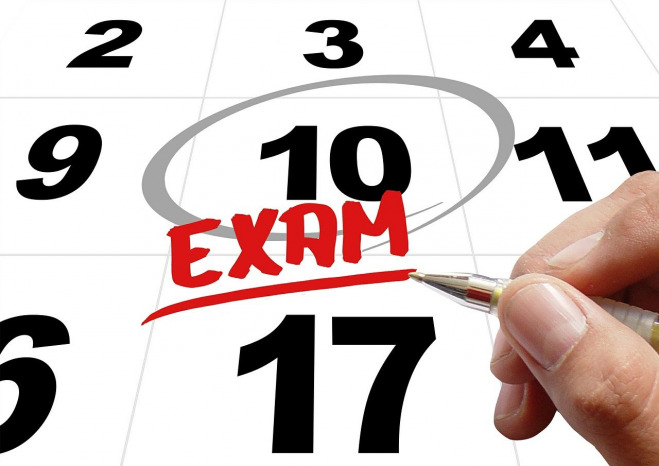How to Come Up With A Preparation Plan For The College Entry Exam
Deciding on the best way for your teenager to prepare for the SAT or ACT is just like anything else: you need to assess your individual needs and come up with the strategy that will be most likely to produce the best result for your family. College entry exams pose unique considerations.
When deciding how to best prepare your student for the test, you have to address several key questions including:
1. When should your student take the test?
-
- What age/grade level?
- What time of year?
- How close to college application deadlines?
2. Who should help your student prepare for the test?
-
- Should you use a Mercedes version of test prep, or will a mom-and- pop version suffice?
- Do you need to hire a 1:1 tutor, or will your student do just fine in a group class?

Source: Pixabay.com
Best Time to Take the Exam
Both the ACT and SAT are offered several times throughout the year, so there are many options to choose from. To find available testing dates for the ACT click here and to find available testing dates for the SAT click here.
Students should aim to take their college entry exam of choice before their senior year to ensure ample time to re-take the test, if necessary, before college applications are due. While many people do not like the thought of re-taking the test, the reality is that – no matter how prepared you are – there is no guarantee of success the first time you take the test.
Some students fall short of where they wanted to be, whether due to lack of preparation, testing anxiety, or just a bad testing day, and therefore decide to take the test again. Even students who achieve their target scores the first time often decide to take the college entry exam again to see if they can do even better. Re-taking the test is not only common but also beneficial, and it is something that needs to be included in your timeline.
One popular recommendation is to take the exam around spring of your junior year of high school. While this is a good general rule, the best time to take the test truly depends on the individual student.
Perhaps your student is overloaded with a heavy academic course load and would prefer to take the test during the summer when he or she can focus solely on prepping for the test.
An advanced student who wants to take the test in the summer, may choose to do so the summer before junior year. An advanced student may already have a handle on all the content on the test before junior year.
For other students, there is also time to wait and take the test for the first time the summer before senior year, with a plan to retake the test in the fall if need be.
The most important thing to remember when planning a timeline for the test, is to have your student take it whenever your student feels truly prepared, while still keeping in mind college deadlines and leaving time open to retake the test.
The Best Way to Embark on Test Preparation
Parents often question whether they need to go with a big, name-brand company, or whether cheaper options can do the job just as well. Once that’s answered, then parents need to determine whether a private tutor (most likely at least moderately priced no matter where you find the tutor) is necessary or a group class will suffice.
Name-brand Test Prep Company v. Private Tutor/Teacher

Source: Pixabay.com
Consider Whether the Cost is Worth the Benefit
Going with a name-brand test prep company, such as The Princeton Review or Kaplan, can come with sticker shock for many parents. Those courses do not come cheap, with prices for live online classes starting at costs of several hundred dollars.
Hiring a private tutor through those companies comes with an even heftier price tag (generally costing over $100/hour). In contrast, hiring a private independent tutor may seem more manageable, with the cost generally being well below $100/hour.
You can also find relatively inexpensive classes and tutoring through websites. For example, Varsity Tutors offers free SAT and ACT prep classes. Those classes have 250+ students, though. The smaller classes on Varsity Tutors are around $31/hour.
Outschool is another site offering prep, but the prices can vary widely, as teachers set their own prices. A quick search on that site shows classes starting as low as $15/class, although generally closer to $20-$30 for classes running around an hour.
The Key to Success is an Instructor with Content and Technique Knowledge

Source: Pixabay.com
As a former The Princeton Review teacher and tutor, I can confidently say that paying for a name-brand company is not a waste of money. You receive pretty much everything you need to succeed.
Students receive material filled with lessons on both technique and content, as well as plenty of practice material. The practice tests students take throughout their courses are not only scored, but come along with detailed score reports. These detailed score reports give much more than just a number. Students can see what kinds of questions they are struggling with and what questions they have mastered, allowing students to strategically approach the rest of their test preparation.
These name-brand courses teach several strategies that will certainly help you boost your score. They also teach a large amount of content, which is also vital to success on the test. When you go with a name-brand company, you are likely to end up with a teacher who is both energetic and competent in preparing your student.
Although prepping the “name-brand way” is certainly not a waste of money, is it necessary? No, not necessarily. You CAN find quality test prep at a cheaper cost, but the caveat is that you really need to do research to make sure you are getting a truly quality teacher/tutor.
How private tutors and teachers choose to prepare students for the SAT or ACT can completely vary, depending upon your tutor or teacher. There are many individuals who put themselves out there as test prep tutors or teachers, but are strictly teaching content. This is not enough! Many others do competently teach techniques as well as content, and these teachers are a suitable alternative to the pricier name-brand companies.
Due Diligence – Find a Teacher Competent in Both Technique and Content
If you choose to find a tutor/teacher outside one of the name-brand test prep companies, you need to do your research and ask questions. Ask the teacher what kind of training the teacher has and how the lessons are structured. Is the teacher teaching techniques in addition to content? Will the teacher be having the student take practice tests and evaluating the student’s progress along the way? All these factors are crucial.
Independent teachers and tutors can be self-taught and still be just as successful with increasing a student’s score as a teacher working for a name-brand company. Many, if not all, of the techniques taught by name-brand companies are also explained in detail in books available for public purchase. As a result, a competent teacher can train themselves in techniques and provide excellent and effective test prep tutoring.
Also, be sure to ask prospective teachers what kind of score increase students normally see after preparing with them.
If most of the teacher’s students improve significantly, and the teacher is teaching both technique and content, then you have most likely found a worthy private tutor/teacher.

Source: Pixabay.com
Group Class or Private Instruction
This question is another one that is very student specific. In general, a well-structured group class will lead to a score increase for most students. The group class could always be supplemented by just a few hours of private tutoring, to help clear up any areas in which the student is still struggling or to suggest any further areas a student could improve to achieve an even greater score increase.
In general, group classes are good for students who can focus well and will pay attention in class, without needing the teacher to interact or focus on them the entire class.
However, if a student struggles with focusing, a private tutor can be helpful. It is much easier for a tutor to hold a student’s attention in a 1:1 session, than to ensure every student is always paying attention during a group class.
In addition, private tutoring can be most beneficial for students with limited time to prepare. A private tutor can evaluate a student’s strengths and weaknesses and center all lessons around those strengths and weaknesses. This is efficient because there is no time wasted on general lessons covering concepts the student already knows. Everything is centered around what that student needs to learn or needs to improve upon to be successful on the test.
The Takeaway
First and foremost, do not get overwhelmed by all the decisions to make! Junior year and senior year can be overwhelming for students and parents alike. Remember these key ideas:
- When deciding a timetable for testing, be sure to factor in time for your student to re-take the test if need be. Both the SAT and ACT are offered year-round, so really think about which time of year would work best for your individual student.
- When deciding whether your student needs a name-brand test prep company or another cheaper option will suffice, remember that either one can lead your student to success on the test.
- Name-brand companies certainly teach tried and true techniques, as well as content. However, cheaper alternatives can also work well if you have vetted who will be teaching your student, ensuring a teacher skilled in both content and strategy.
- When deciding whether your student needs a group class or private tutoring, consider your individual student. Does your student focus and do well in a group environment and have plenty of time to prepare for the test? If so, a well-run group class will work wonders, perhaps supplemented by just a few hours of private tutoring to help ensure the highest score increase possible.
- If your student has trouble focusing or is limited on time to prepare, then private tutoring may be the best bet.
Finally, remember to take a deep breath and try to enjoy your child’s junior and senior year.
